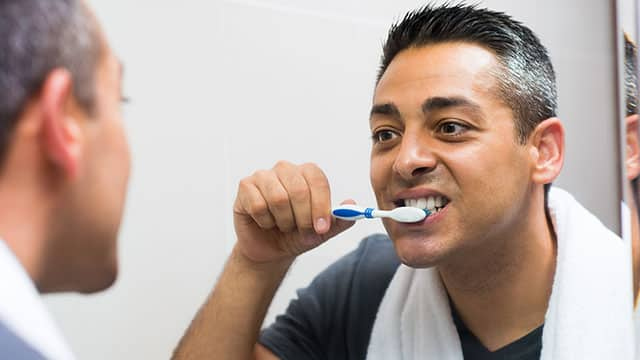What Are Dental Implants?
These artificial substitutes for tooth roots are either screw, cylinder, or blade-like in form. The titanium in the implants fuses with the jawbone, ensuring that the implant won’t slip or make noise. In many ways, implants function like natural teeth.
Once you heal from the implant surgery, a crown is attached to the part of the implant that protrudes through the gumline.
How Soon Can You Expect Your Implant Site to Heal?
Dental implant surgery is performed in stages, requiring adequate healing time after each one. These stages include removing the damaged tooth, bone grafting (if needed), dental implant placement, abutment placement, and the placement of your artificial tooth (crown). After your implant is placed, your oral surgeon will encourage you to rest and practice good oral hygiene to heal the area around the titanium screw. This can take several months.
Am I Rejecting My Implant?
While titanium generally causes fewer problems than other metals, some people may be allergic to it.
The International Journal of Implant Dentistry notes that due to implants' corrosion and wear, titanium alloy particles can get deposited in the surrounding tissues. In some people, this can cause bone loss due to inflammatory reactions or hypersensitivity reactions that cause implant failure.
So how can I recognize if I have a dental implant allergy?
Seminal studies cited by the International Journal of Implant Dentistry report that titanium allergy symptoms include:
- Erythema (skin redness, in this case, in the tissues around the implant)
- Urticaria (hives that may be seen on the skin or gum surface)
- Eczema (itchy inflammation of the skin or gum tissue)
- Swelling or pain
- Necrosis (death of cells or tissue, in this case, around the implant)
- Toxic reactions in other tissues, causing yellow nail syndrome (which can also affect the lungs and airways)
- Bone loss
If you notice any of these symptoms, you must contact your dentist immediately.
Diagnosing Titanium Allergy
If medical or dental professionals suspect that you might be allergic to the titanium in your dental implant, the first step is to take diagnostic tests, such as a patch test. Some physicians might also recommend in vitro blood tests to detect metal allergy, including the lymphocyte transformation test, the lymphocyte migration inhibition test, and the commercially available MELISA test.
The International Journal of Implant Dentistry points out that zirconia implants can be an alternative to titanium implants. But there isn’t long-term clinical data associated with their usage, and so your dental professional is the best person to speak to about alternative options.
It can feel both disappointing and overwhelming to learn that you’re not taking to your new implant as well as you'd hoped. But the good news is that there are other options available to you. A dental professional can help you treat your titanium allergy and ensure that you fill the gap in your mouth with a treatment that works for you!
Oral Care Center articles are reviewed by an oral health medical professional. This information is for educational purposes only. This content is not intended to be a substitute for professional medical advice, diagnosis or treatment. Always seek the advice of your dentist, physician or other qualified healthcare provider.
ORAL HEALTH QUIZ
What's behind your smile?
Take our Oral Health assessment to get the most from your oral care routine
ORAL HEALTH QUIZ
What's behind your smile?
Take our Oral Health assessment to get the most from your oral care routine















